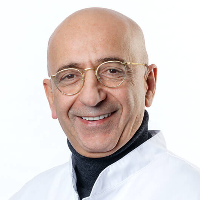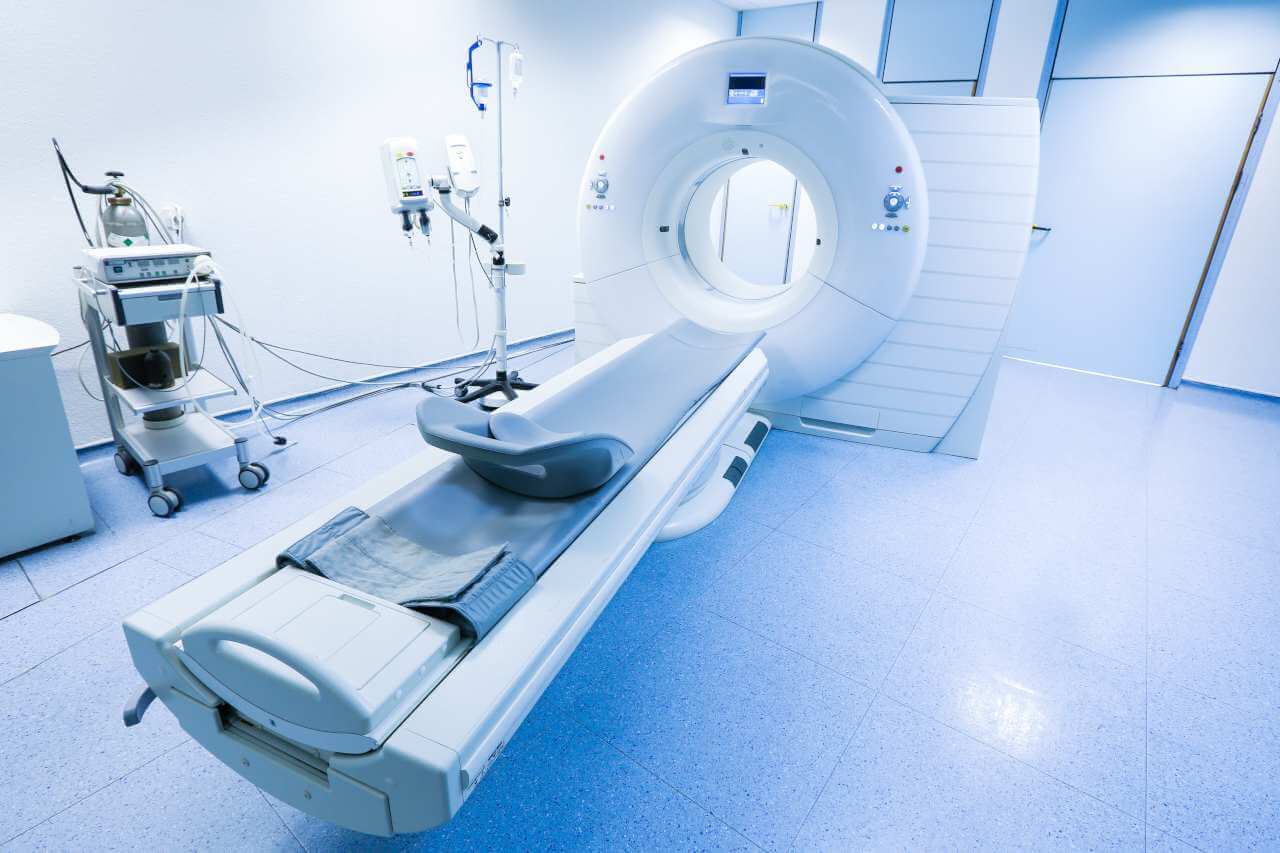
The program includes:
- Initial presentation in the clinic
- case history collection
- general clinical examination
- laboratory tests:
- complete blood count
- general urine analysis
- radioimmunoassay
- proinsulin secretion and C-peptide
- blood glucose
- biochemical analysis of blood
- TSH-basal, fT3, fT4
- tumor markers
- indicators of inflammation
- indicators blood coagulation
- abdominal ultrasound
- endosongraphy
- MRI of ches and abdominal cavity
- endoscopic retrograde cholangiopancreatography (ercp)
- preparation according to preoperative standard
- pancreatoduodenal resection
- histological examination
- symptomatic treatment
- cost of essential medicines
- nursing services
- full hospital accommodation
- explanation of future recommendations
Required documents
- Medical records
- MRI/CT scan (not older than 3 months)
- Biopsy results (if available)
Service
You may also book:
 BookingHealth Price from:
BookingHealth Price from:
About the department
The Department of General and Abdominal Surgery, Hernia Surgery, Colorectal Surgery and Endocrine Surgery at the Meoclinic Hospital Berlin. offers the full range of surgical treatment in the fields of its competence. The highly qualified team of the department's surgeons successfully performs operations for the treatment of diseases of the esophagus, stomach, small and large intestines, liver, gallbladder and bile ducts, spleen, pancreas, adrenal glands and thyroid gland. In addition, the department performs surgery for patients with rectal and anal pathologies, including hemorrhoids, anal fistulas, anal fissures and anal venous thrombosis. The specialists also admit patients with hernias, namely inguinal and umbilical hernias, anterior abdominal wall hernias, incisional hernias. The department's operating rooms are equipped with state-of-the-art technologies for sparing minimally invasive interventions. Minor interventions are performed on an outpatient basis, without hospitalization. Prior to any surgical intervention, the patient undergoes comprehensive diagnostics, on the basis of which a decision is made on the optimal surgical technique for the upcoming treatment.
The Head Physician of the department is Prof. Dr. med. Omid Abri. The doctor became one of the pioneers in the field of minimally invasive surgery and founded the first clinic in Europe specializing in such interventions. Prof. Omid Abri is deservedly proud of his professional achievements and over the years of his clinical practice he personally performed more than 7,000 surgical interventions.
A team of general and abdominal surgeons performs operations for appendicitis, traumatic injuries of the digestive system, inflammatory lesions of the abdominal organs and gastrointestinal cancers. The department's specialists have an impressive experience in the application of low traumatic laparoscopic techniques, which significantly reduce the risk of intraoperative and postoperative complications. Minimally invasive interventions do not require opening the abdominal cavity, but are performed through several small incisions in the skin and soft tissues. The instruments are inserted through incisions several centimeters long into the abdominal cavity in order to perform the necessary manipulations and a miniature video camera that transmits images in multiple zoom to a large screen. Laparoscopic operations allow the patient to effectively get rid of the pathology and return to their usual way of life as soon as possible.
The patients with hernias are also in the focus of attention of the department's surgeons. The department performs surgical treatment of inguinal and umbilical hernias, incisional hernias, and anterior abdominal wall hernias. In most cases, a clinical examination is sufficient to detect hernia. Ultrasound, CT, MRI and X-ray scanning can be used as additional diagnostic methods. If, according to the diagnostic results, the patient requires surgical treatment, the attending physician will inform him in detail about the possible types of operations, their risks, the type of anesthesia (general or local) and the predicted outcome. Hernia repair surgery is performed using minimally invasive techniques. In most cases, the department's surgeons resort to mesh hernioplasty. Small hernias can be treated with tension hernioplasty, during which the surgeon stretches the tissues and stitches them in layers. In this case, it is not necessary to use a mesh prosthesis, since the patient's own tissues are used. To consolidate the result of the surgical intervention, the patient must follow medical recommendations: avoid intense physical exertion, long walking, cycling, swimming, etc. Strict recommendations must be followed for about two weeks, while complete recovery after surgery occurs in 3-4 months.
A team of endocrine surgeons deals with the treatment of thyroid, parathyroid, adrenal and pancreatic diseases. The specialists quite often perform resection of benign and malignant endocrine neoplasms. In most cases, doctors perform laparoscopic surgery, which contributes to the high safety of treatment. Endocrine surgeons cooperate closely with endocrinologists and other physicians from related disciplines to develop the most effective treatment regimens.
The department's therapeutic offer is complemented by the surgical treatment of rectal and anal pathologies. Colorectal surgeons have successful experience in performing minimally invasive operations for hemorrhoids, anal fistulas and fissures, anal canal diseases, anal venous thrombosis, fecal incontinence, and coccygeal fistulas. The patients are offered individual consultations, during which they receive recommendations on the diagnostics and treatment of colorectal pathologies in accordance with modern medical standards.
The department's range of surgical services includes:
- General and abdominal surgery
- Surgical treatment of esophageal diseases
- Surgical treatment of stomach diseases
- Surgical treatment of diseases of the small and large intestine
- Surgical treatment of liver diseases
- Surgical treatment of diseases of the gallbladder and bile ducts
- Surgical treatment of spleen diseases
- Surgical treatment of appendicitis
- Surgical treatment of traumatic abdominal injuries
- Surgical treatment of hernias
- Surgical treatment of inguinal hernias
- Surgical treatment of umbilical hernias
- Surgical treatment of incisional hernias
- Surgical treatment of anterior abdominal wall hernias
- Endocrine surgery
- Surgical treatment of inflammatory thyroid diseases
- Surgical treatment of hyperthyroidism
- Surgical treatment of goiter
- Surgical treatment of Graves' disease
- Surgical treatment of thyroid cancer
- Surgical treatment of parathyroid diseases
- Surgical treatment of adrenal diseases
- Colorectal surgery
- Surgical treatment of anal fissures
- Surgical treatment of anal fistulas
- Surgical treatment of hemorrhoids
- Surgical treatment of anal canal pathologies
- Surgical treatment of anal venous thrombosis
- Surgical treatment of coccygeal fistulas
- Surgical treatment of fecal incontinence
- Other medical services
Curriculum vitae
Prof. Dr. med. Omid Abri founded the first European clinic specializing in minimally invasive surgery in 2000, where he worked as Medical Director and Managing Partner until 2019. Currently, the Professor is the Head of the Department of General and Abdominal Surgery, Hernia Surgery, Colorectal Surgery and Endocrine Surgery at the Meoclinic Hospital Berlin. Dr. Omid Abri is known as one of the best experts in Germany for gastrointestinal surgery and gallbladder resection surgery. The Professor contributed to the development and improvement of minimally invasive surgical techniques, as well as to the establishment of minimally invasive surgery as the gold standard of surgical interventions. He has more than 7,000 successfully performed operations of varying complexity.
Photo of the doctor: (c) Meoclinic
About hospital
The Meoclinic Hospital Berlin is one of Germany's most renowned multidisciplinary private hospitals offering top-class and patient-centered medical care. The hospital opened its doors to patients back in 2000 and today is deservedly proud of its vast experience. It has 28 specialized departments, each of which is responsible for the treatment of a particular group of diseases. A highly professional medical team consisting of 67 doctors takes care of the health of patients. The basis of the work of the doctors of the hospital is the use of the most advanced and, if possible, sparing treatment methods. The hospital is certified according to ISO 9001:2015 standards, so patients benefit from the highest level of the quality of service, adherence to hygiene and safety standards.
The hospital includes almost all fields of modern medicine: internal medicine, general and abdominal surgery, endocrine surgery, vascular surgery, hernia repair surgery, hand surgery, plastic surgery, pediatric surgery, cardiology, pulmonology, gastroenterology, rheumatology, proctology, gynecology, urology, ophthalmology, orthopedics, neurology, neurosurgery. To provide surgical treatment, the hospital has three high-tech surgical suites, which perform both minimally invasive interventions and DaVinci robot-assisted interventions, as well as the most complex operations lasting several hours. In addition, the hospital has an advanced Radiology Center with innovative devices for computed tomography, magnetic resonance imaging, ultrasound diagnostics and X-ray scanning. These resources allow providing accurate diagnostics and effective treatment of the highest European level.
Despite the fact that the hospital has advanced technologies and modern infrastructure, the focus of the medical staff is on the patient – his needs, wishes and well-being. During the treatment in this medical center, patients are surrounded by care, comfort, and they are treated with maximum respect and understanding. The doctors of the hospital use all their professionalism and medical knowledge for the benefit of patients, saving lives even in particularly complex cases.
Photo: (с) depositphotos
Accommodation in hospital
Patients rooms
The patients of the Meoclinic Hospital Berlin live in well furnished rooms, corresponding to the level of luxury five-star hotels. There is a fantastic view from the windows of the patient rooms on the Gendarmenmarkt, the Reichstag, the Friedrichstrasse or the courtyard of the hospital. The hospital has a pleasant atmosphere, which is also facilitated by soothing colors. The standard patient rooms include a comfortable bed, a bedside table, a desk and chairs, a wardrobe with a built-in safe for storing valuables, air conditioning, a minibar, a TV and a telephone. Free Wi-Fi is available in the patient rooms. Each patient room has an ensuite bathroom with shower and toilet, heated floor. There are bath slippers, towels and toiletries in the bathroom. A bathrobe, shower caps, shaving kit and hairdryer are available upon request.
Meals and Menus
The patients of the hospital are offered tasty and healthy three meals a day: breakfast, lunch and dinner. The menu mainly includes vegetable, fruit, poultry and fish dishes. Each patient has a choice of several menus, including traditional Russian and Arabic cuisine, as well as kosher and vegetarian meals.
If for some reason you do not eat all foods, you will be offered an individual menu. Please inform the medical staff about your dietary preferences prior to treatment.
Further details
Standard rooms include:
Accompanying person
Your accompanying person may stay with you in your patient room or at the hotel of your choice during the inpatient program.
Hotel
You may stay at the hotel of your choice during the outpatient program. Our managers will support you for selecting the best option.




